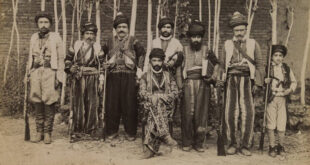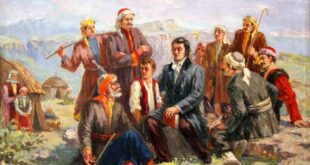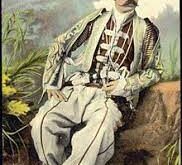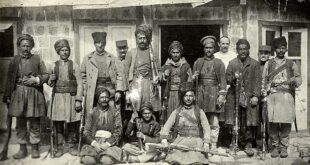Why didn’t Kurdistan become a nation after World War 1?
By:Harold Kingsberg
The treaty that got the Ottoman Empire out of the First World War was the Treaty of Sèvres. It was signed on 10 August 1920, and in addition to stripping the Ottoman Empire of all of its territory off of the Anatolian Peninsula, it didn’t leave the Turks with very muchon the Anatolian Peninsula either. Here’s the map: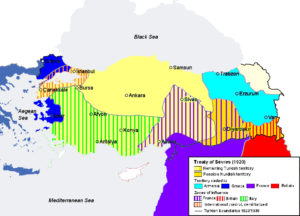
You’ll notice that the area south of the light blue – the area south of Armenia, is listed as “Possible Kurdish Territory.” There was supposed to be a referendum in that region on whether it wanted to remain part of the Ottoman rump state or if it wanted to become an independent Kurdistan. You’ll notice that this doesn’t include any of modern Syria or Iraq – Britain and France had already claimed those regions and were not about to give them up.
Of course, what you’ll also notice is that the Treaty of Sèvres does not reflect modern borders – and in fact, never reflected historical borders, either. As it turned out, while the Ottoman emperor was willing to sign the treaty, the Turks were not. In 1920, Mustafa Kemal essentially set up a rival government in Ankara and declared that, if the Allies wanted to scissor up the Anatolian Peninsula, then they’d have to fight to do it. After all, most of the fighting of the First World War involving the Ottoman Empire had not taken place in modern-day Turkey – and the most notable bit that had, Gallipolli, had been a crushing disaster for the Allies. The Allies figured that Kemal – now known to us as Atatürk – was bluffing and sent in troops. Greece, in particular, sent in a large number of soldiers.
It wasn’t a bluff. The result was another two years of war, what is now known to historians as the Turkish War of Independence. At the end of it, the Greeks were forced out, the zones of influence were dismantled, Armenia was absorbed altogether, the Ottoman government was overthrown altogether and the Kurdistan referendum was cancelled. All of this was formalized by the 1923 Treaty of Lausanne, which formalized the new borders.
Turkey had just fought a war to, in part, avoid losing land to a potential Kurdistan. France and Britain had never been at all interested in the concept of a Kurdistan made from lands they already controlled. It took until the 1990’s until the Kurds managed to gain their own autonomous region,[1] and even to this day, they do not have a sovereign state.
[1] Technically, Iraqi Kurdistan was autonomous from 1970 on. In practice, this was not the case History of Kurdistan
History of Kurdistan
